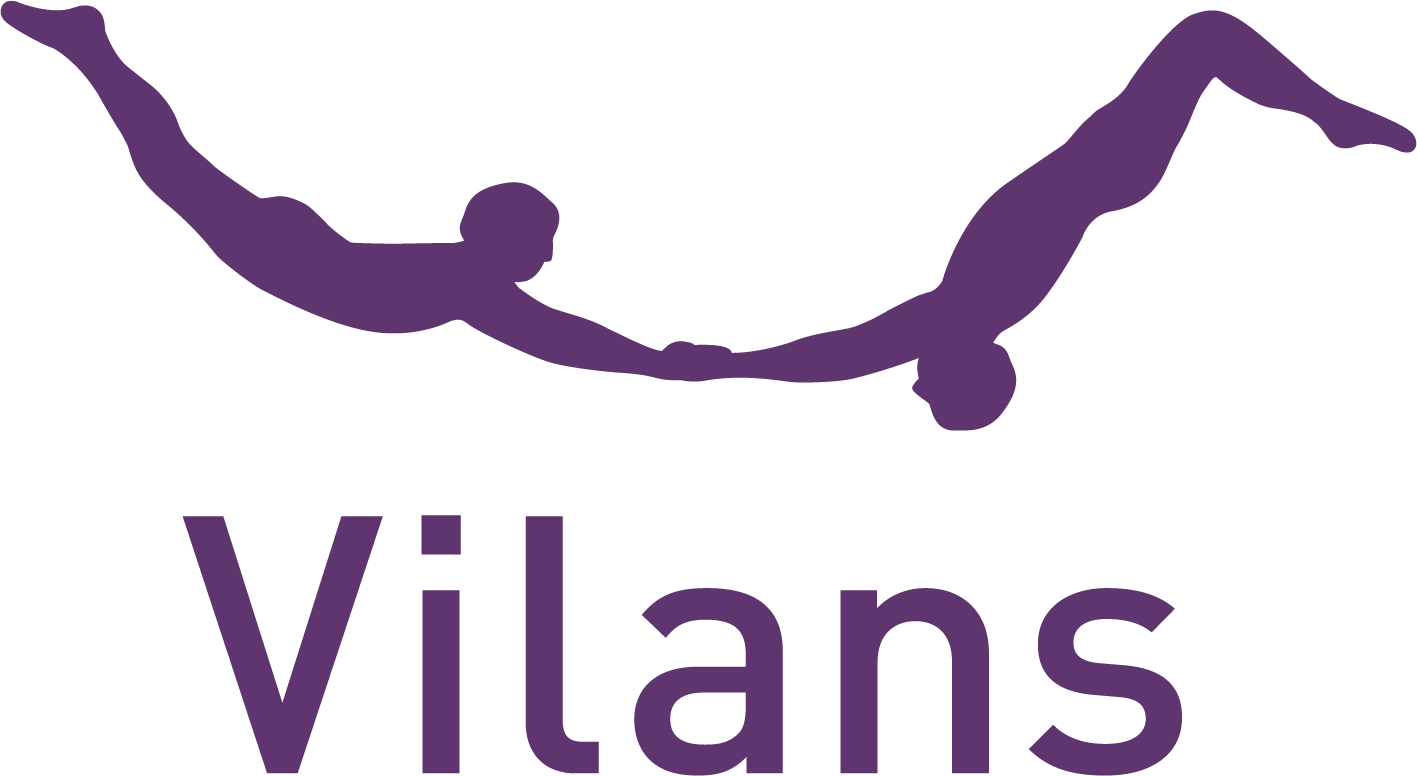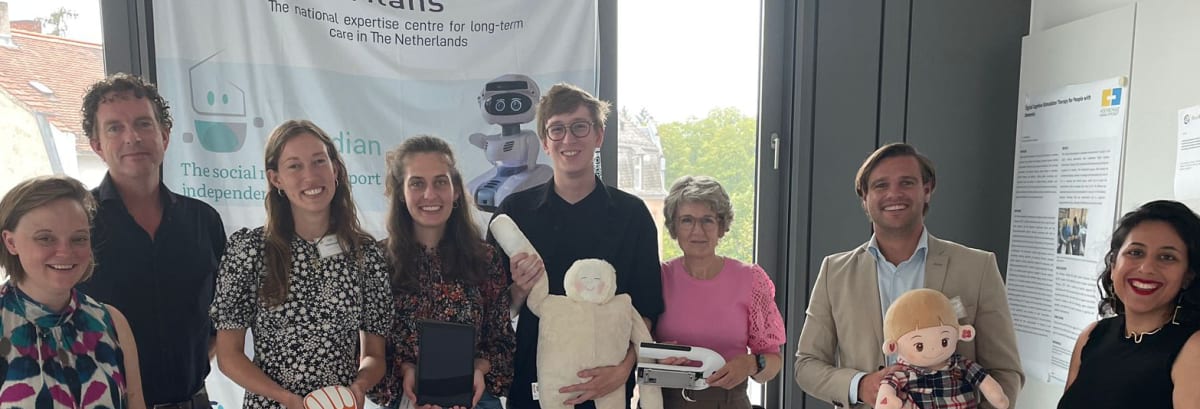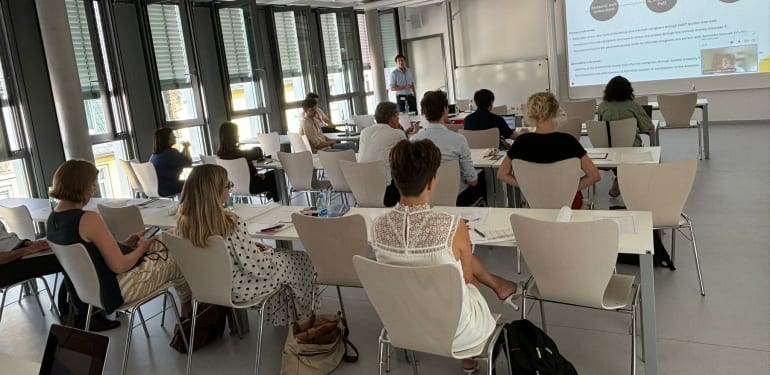Vilans at the 14th ISG Conference in Frankfurt: Navigating Sustainability and Innovation in Gerontechnology
Published on: 12-09-2024
Frankfurt, September 2024 – The 14th International Society for Gerontechnology (ISG) Conference concluded successfully, addressing the theme "Sustainability and Crises – Challenges and Innovation for Gerontechnology." Vilans, the Dutch national expertise center for long-term care, stood out with presentations that explored sustainable technological solutions aimed at enhancing elderly care amidst growing challenges.
The 14th ISG World Conference in Frankfurt was a tremendous success! I’m proud of our Vilans team for presenting nine important studies, from social robotics and AI to responsible innovation. Gerontechnology plays a critical role in empowering healthy aging, especially in creating age-friendly environments.
Henk Herman Nap, Theme Coordinator Digital Care at Vilans
Vilans' presence at the ISG Conference highlighted a wide range of innovative technologies, focusing on sustainability and resilience in elderly care. The presentations addressed key challenges in long-term care, emphasizing the importance of human-centered design, AI, and robotics.
Advancing Human-Robot Interaction Through Co-Design and Responsible Innovation
Bob Hofstede presented a case study on the Guardian project, in which a socially assistive robot (SARs) for older adults was developed and the research focused on enhancing the human-robot interaction (HRI). His research applied both co-design and responsible innovation (RI) approaches, aiming to align the needs and values of end-users with SAR functionalities.
It was a milestone for me to present the Guardian project at ISG2024. The project, completed last year, focused on enhancing human-robot interaction through co-design and responsible innovation. Drawing from Dirk Lukkien’s research, I discussed how SARs can foster meaningful interaction with older adults, especially in long-term care.
Bob Hofstede
The project team’s work illustrates how responsible innovation can ensure ethical and user-centered SAR design. This approach enhances HRI by ensuring compatibility between SAR functionalities and the needs of older adults, mitigating cognitive decline and providing support in daily activities like reminders for medication and social companionship.
Exploring Client Values in Assistive Technology Research
Marian Zegwaard presented preliminary findings from a scoping review, showing that while research on assistive technologies (ATs) often emphasizes independence and safety, values like dignity and privacy are underrepresented.
There’s still a need to focus on dignity and involve older adults early through co-design.
Marian Zegwaard
The next phase of the study will further explore older adults’ values in a qualitative study, aiming to develop a value matrix in collaboration with other research lines, ensuring these values are accountable to older individuals.
Combining Co-Design and AI: Supporting Dementia Care
Henk Herman Nap together with Sima Ipakchian Askari and Nathalie Stolwijk led an engaging session on the HAAL project (HeAlthy Ageing eco-system for peopLe living with dementia). A project in which they co-designed an AI-based decision support system (DSS) and combined technology development and co-design practices. During the project they focused on creating an ecosystem that adapts to the evolving needs of dementia patients while reducing caregiver workload.
We covered a range of exciting topics at our HAAL symposium, from co-design and AI algorithms to responsible innovation. We even ended with a creative workshop where participants got hands-on with paper prototyping.
Sima Ipakchian Askari
This collaborative approach to innovation ensures that technologies are not only functional but also tailored to the specific needs of users.
Tackling Malnutrition in Elderly Care
Janna Alberts presented her work on integrating technology to combat malnutrition in older adults. Her presentation, "Towards a digital companion to support older adults with malnutrition," highlighted the challenges faced by home care professionals in addressing malnutrition and how technology could offer support.
I believe there are still lots of opportunities to tackle malnutrition in older adults’ care, in which technology may play a role.
Janna Alberts
Her project underscores the importance of incorporating malnutrition management into everyday care practices.
Socially Assistive Robots: Empowering Care Through Technology
Bob Hofstede and Tom van Hoesel presented their research on cuddly and socially assistive robots (CSARs) in long-term care. The key focus of the research was the potential of these robots to provide comfort, companionship and daytime-structure support to older adults.
Together with Bob Hofstede, I had the opportunity to present our research on cuddly and socially assistive robots in long-term care. This was my first time presenting at a conference, and it was an exciting experience.
Tom van Hoesel
The duo also presented results of a research that showed the potential of CSARs in disability care.
Technology Adoption for Workforce Sustainability
Xandra van Mergen presented on the “Anders Werken in de Zorg” (“Working differently in Care”) project, which aims to address workforce challenges and improve satisfaction in the long-term care sector through technology adoption.
The project encourages collaborative efforts among elderly care organizations to collectively implement and evaluate technological innovations. Xandra explained how Vilans uses tools like the Honeycomb model and the Waardewaaier (Value mapping) method to assess the value of these technologies. She highlighted the growing international interest in this collaborative approach, saying, “Working differently in healthcare is a good example of how cooperation can lead to better outcomes.”
Innovations For Futureproof Care
The 14th ISG Conference highlighted the pressing need to sustain innovations in gerontechnology, particularly as the aging population grows and the workforce struggles to keep pace. Technological advancements in AI, robotics, and co-design are crucial to creating adaptable, resilient care systems that can meet future challenges.
The insights shared at ISG2024 pave the way for empowering healthy aging and creating care systems that are adaptable to future challenges. Vilans remains committed to advancing these innovations as they look ahead to the next ISG Conference in Vancouver in 2026.
Henk Herman Nap








